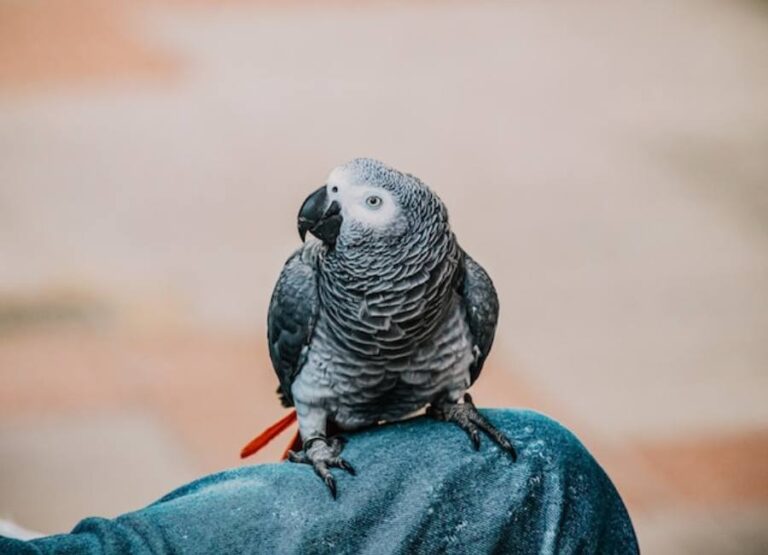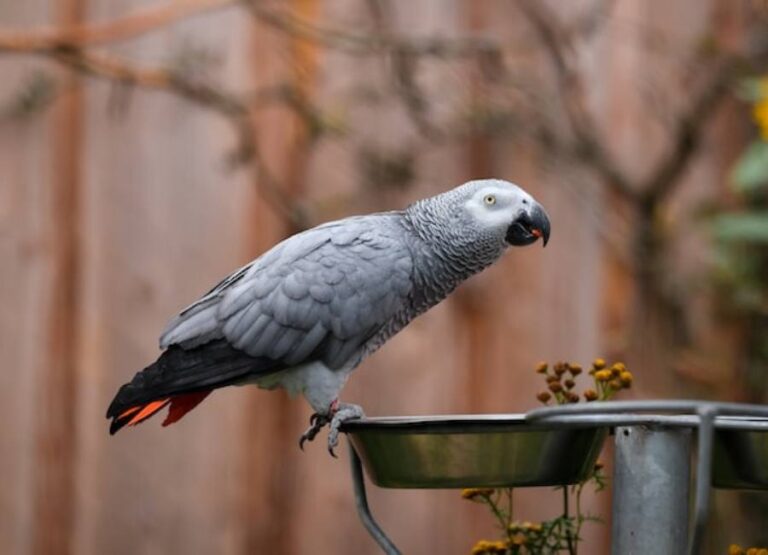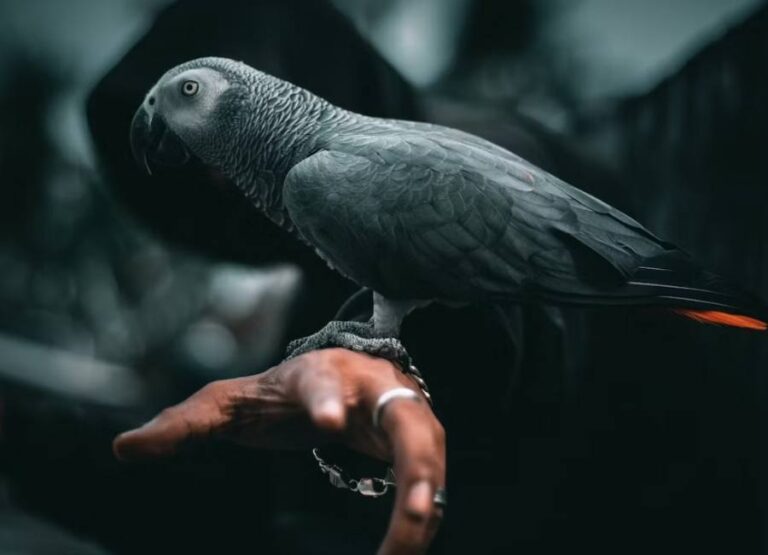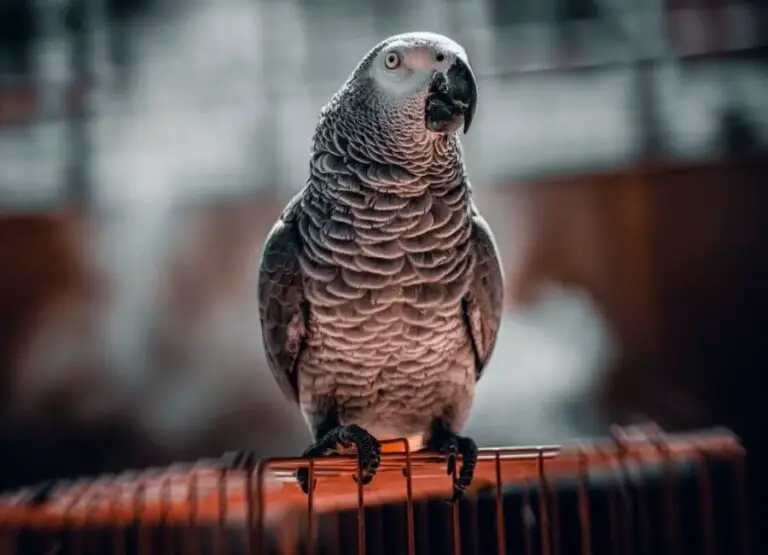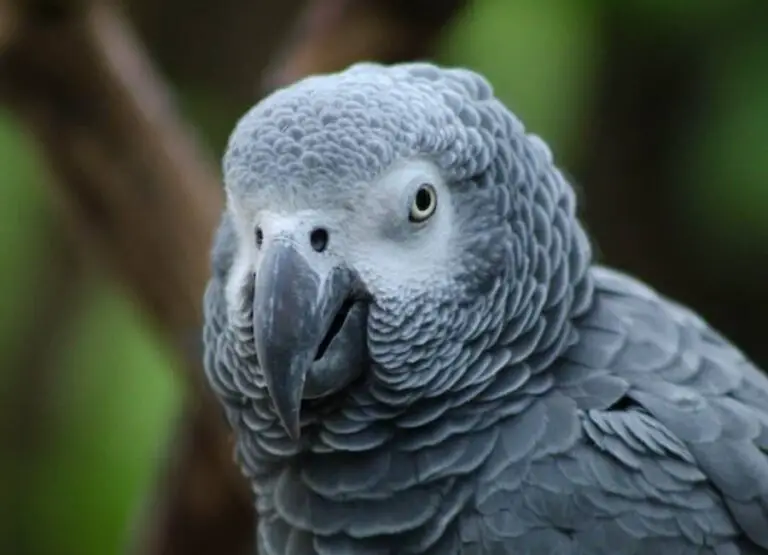Why is my African Grey Aggressive [11 Reasons]
![Why is my African Grey Aggressive [11 Reasons] Why is my African Grey Aggressive](https://petcreeks.com/wp-content/uploads/2023/06/Why-is-my-African-Grey-Aggressive.jpg)
Why is my African grey aggressive? Let’s find out together…
Are you a proud owner of an African Grey parrot but struggling to understand why your feathery friend is suddenly displaying aggressive behavior?
Don’t worry, it’s not uncommon for African Greys to have occasional mood swings.
In this blog post, we’ll explore the possible reasons behind your parrot’s aggression and provide tips on how to handle it.
So, sit back, relax, and let’s help you create a loving and peaceful bond with your parrot!
Why is my African Grey Aggressive
There could be a variety of reasons why your African Grey parrot is exhibiting aggressive behavior.
One possible cause could be due to a lack of socialization or interaction with its owner.
Another potential reason could be a lack of proper training or reinforcement of positive behaviors.
It’s also possible that the bird is experiencing stress or anxiety, which can manifest as aggression.
Consulting with a veterinarian or avian behavior specialist may be helpful in addressing the underlying cause of the behavior and developing a plan to address it.
Let’s break it down…
Causes of African grey parrot aggression
The following are some of the most common causes of aggression in African grey parrots:
1. Past Trauma or Mistreatment
Parrots that have previously undergone trauma or cruelty may demonstrate hostility as a defense mechanism.
They can recover trust and confidence with patience, understanding, and positive reinforcement training strategies.
Spend time developing a trusting relationship, providing a stable and supportive environment, and rewarding positive behaviors to assist your parrot in overcoming prior trauma.
2. Lack of Socialization
Inadequate socialization might result in hostility in African Grey parrots.
Introduce your parrot to a variety of people, animals, and situations from an early age to ensure favorable experiences.
Expose them to new sights, sounds, and sensations on a regular basis, while allowing them to withdraw to their comfort zone as necessary.
To build positive socialization skills, encourage gentle interactions and reward calm behavior.
3. Hormonal Changes
African Grey parrots may become violent during breeding seasons or hormonal fluctuations.
During these times, it is critical to be understanding and avoid direct touch that may spark hostility.
To refocus their energy, provide extra mental and physical stimuli, such as foraging toys.
Consulting an avian veterinarian about potential hormonal therapies can also help with aggressive behavior management.
4. Fear or Anxiety
When intimidated or anxious, African Grey parrots can become aggressive.
To solve this, it is critical to provide your parrot with a safe and comfortable environment.
Provide hiding places, perches, and toys that stimulate the mind.
Expose your parrot to new situations, people, and items gradually to help them gain confidence and eliminate fear.
Overcoming fear-related aggressiveness requires patience and gentle guidance.
5. Territorial Instincts
African Grey parrots can be aggressive when it comes to their cages or favored areas.
It is critical to respect their limits and avoid invading their personal space.
Make a separate play area for them to explore and interact with you, progressively increasing their domain as time passes.
Individual space and the ability to choose their own limits can help prevent territorial violence.
6. Jealousy
African Grey parrots might become envious of other pets or members of the household.
It is critical to give all family members equal attention and positive interactions while proactively addressing envy issues.
Provide separate cages if necessary, supervise introductions, and progressively integrate various people to avoid sparking jealousy-related hostility.
Encourage pleasant contact and give your parrot a prize for embracing people in their environment.
7. Lack of Routine and Predictability
African grey parrots flourish in routine-driven surroundings. Unexpected shifts or unpredictability might stress them out, resulting in hostility.
Maintain a stable and predictable environment by establishing a daily plan for feeding, playtime, and relaxation.
Consistency and predictability might make your parrot feel more safe, which reduces the risk of aggressive behavior.
8. Overstimulation or Overwhelm
Excessive noise, agitation, or stimulation might cause African Grey parrots to become aggressive.
It’s critical to detect their body language and signs of distress. When necessary, provide a quiet getaway spot where they can relax and rejuvenate.
To avoid overstimulation-related aggression, keep an eye on their stress levels and maintain a quiet environment.
9. Lack of Mental Stimulation
In African Grey parrots, boredom can emerge as aggressiveness.
To stay happy and content, these highly intelligent birds require mental stimulation.
To keep their minds active, provide a range of toys, puzzles, and foraging opportunities.
Regular engagement, training sessions, and rotating toys can help to reduce boredom-related aggressiveness.
Through interactive toys and games, you can encourage problem-solving and mental engagement.
10. Lack of Positive Reinforcement Training
Neglecting positive reinforcement training might make it difficult for your parrot to communicate and behave responsibly.
To reinforce desired actions, use reward-based training strategies, eventually replacing aggressive tendencies with positive alternatives.
Reward your parrot for being calm and provide them with appropriate outlets for their energy, such as trick or target training.
Training your African Grey parrot requires consistency and patience.
11. Health Issues
Undiagnosed African grey health problems, suffering, or discomfort in African Grey parrots can cause hostility.
Regular visits to an avian veterinarian are required to ensure your parrot’s physical health.
Keep an eye out for any changes in behavior or appetite, and seek immediate medical assistance if necessary.
Treatment of underlying medical problems can dramatically lessen aggressive behavior.
Read more about identifying a sick African grey parrot.
How to stop African grey parrot aggression
There are several strategies that can be used to stop African grey parrot aggression, including training, avoiding yelling, building trust, and limiting petting to the head.
It is important to respond sensitively to visual cues and to take steps to avoid hormonal triggers, such as limiting petting to the head.
Additionally, it is important to understand the reasons for the aggression, which can include fear and feeling threatened.
Here are some ways to stop African grey parrot aggression:
- Identify the cause of the aggression: Observe your parrot’s environment and daily routine and try to determine what might be triggering the aggression.
- Positive reinforcement training: Use positive reinforcement training to teach your parrot basic commands, such as “step up” or “quiet”, and reward them with treats when they obey. This can help establish trust and lessen aggressive behavior.
- Avoid punishment: Avoid punishing your parrot for aggressive behavior, as this can escalate aggression.
- Provide plenty of socialization and stimulation: African grey parrots are very social animals and require plenty of interaction and stimulation to stay healthy and happy. Make sure your parrot has plenty of toys and activities to keep them occupied and interact with them regularly.
- Seek professional help: If your parrot’s aggression persists or is severe, seek advice from an avian behaviorist or veterinarian who specializes in bird behavior. They can provide more specific guidance on how to modify the behavior.
Find out more about identifying a happy African grey parrot.
How to prevent aggression in African grey parrots
Here are some common ways to prevent aggression in African grey parrots:
- Proper Socialization: Adequate socialization from a young age can help prevent aggression.
- Avoid yelling: Raising your voice in anger (or pain) will not make your bird understand that it has done something wrong. In fact, it’s more likely to reinforce your bird’s bad behavior as it will love getting such a big reaction out of you. Whatever happens, avoid the temptation to yell at or punish your bird.
- Regular Exercise: Exercise and playtime are important to keep parrots physically and mentally fit and help prevent boredom.
- Consistent Training: Consistent and positive training helps your parrot learn appropriate behavior and develop trust.
- Positive Reinforcement: Provide positive reinforcement with treats and praise when your parrot exhibits good behavior.
- Avoid Over-Excitement: Too much excitement and stimulation can trigger aggressive behavior.
- Avoid Stressful Situations: Avoid situations that can cause stress, such as loud music or sudden, unexpected movements.
- Provide Adequate Space: Providing adequate space for your parrot to move around and explore can prevent territorial behavior.
- Keep a Routine: Maintain a consistent routine when it comes to feeding, playtime, and bedtime.
- Avoid forcing interaction: Many people try to force interaction in the hope that this will stop the bird from resisting. However, this can cause further damage to the bird by trying to fly away from what frightens it.
Read more about identifying an unhappy African grey parrot.
Frequently Asked Questions
Why is my African grey suddenly aggressive?
There could be a variety of reasons why your African grey is suddenly showing aggressive behavior. Common causes include hormonal changes, fear or stress, lack of socialization or training, illness or pain, and changes in their environment or routine.
Is my African grey aggressive because it was mistreated in the past?
It’s possible that past mistreatment could be contributing to your African grey’s aggressive behavior, especially if they have not received proper socialization or training. However, there could also be other underlying factors that need to be addressed, such as medical issues or changes in their environment.
Can I train my African grey to be less aggressive?
Yes, with proper training and socialization techniques, it is possible to help your African grey overcome its aggressive behavior. This may include methods such as positive reinforcement, desensitization, and working with a professional animal behaviorist.
Should I punish my African grey for being aggressive?
No, punishment is not an effective way to address your African grey’s aggressive behavior. Instead, it can often make the problem worse and cause your pet to become more stressed or fearful. It’s important to address the underlying cause of the behavior and work on positive training techniques.
Will getting another bird help my aggressive African grey?
While introducing another bird into your African grey’s environment may provide some socialization and stimulation, it is not a solution for addressing aggressive behavior. It’s important to address the underlying causes of the behavior and work on training techniques to help your pet become more comfortable and relaxed in their environment.
Do African greys become more aggressive as they age?
It’s possible that African greys may become more prone to aggressive behavior as they age, especially if they are not properly socialized or trained. However, there could also be underlying medical issues or changes in their environment that need to be addressed. It’s important to work with a professional animal behaviorist to determine the underlying cause of the behavior and develop a plan for addressing it.
Conclusion
In conclusion, if you’re dealing with an aggressive African Grey parrot, don’t worry – you’re not alone!
There are a number of reasons why your feathered friend may be acting out, from lack of proper socialization to feeling threatened or unsafe in their environment.
By working with your bird and addressing any underlying issues, you can help your African Grey become a happier, more well-adjusted pet.
Remember, with a little patience, understanding, and lots of love, you can help your parrot overcome their aggressive tendencies and become the devoted companion you know they can be.

